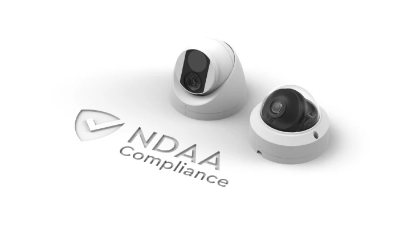NDAA Compliance: What do you need to know about NDAA?

Navigating NDAA Compliance in Today’s Security Industry
The world of security surveillance has evolved—so have the regulations governing it. If you're in the market for security cameras or related systems, NDAA compliance is more than a buzzword—it's a legal requirement for government contracts and a wise safeguard for everyone else.
The Shift in Surveillance Standards
The National Defense Authorization Act (NDAA), particularly Section 889, prohibits the use of surveillance equipment from select foreign manufacturers that pose national security concerns. These rules reflect growing fears over cybersecurity threats and foreign influence via embedded surveillance tech.
Who’s on the Banned List?
- Hikvision
- Dahua
- Huawei
- ZTE
- Hytera
These companies were banned for ties to the Chinese government and military. Even rebranded or OEM-integrated equipment using their components may be subject to restrictions for federal use.
What Is NDAA Compliance?
Being NDAA compliant means your products are free of parts or technology from banned companies. It ensures eligibility for U.S. government contracts and protects against legal or cyber risks.
The Secure Equipment Act
Passed in 2021, this law prevents the FCC from approving new devices from banned manufacturers. This effectively halts the distribution of these products in the U.S. market.
Does This Affect You?
- Government contractors must remove banned devices to remain compliant.
- Installers and integrators risk liability if they use restricted components.
- Homeowners and private businesses may still use non-compliant gear but face support and compatibility issues long term.
Top NDAA-Compliant Brands
| Brand | Country | Specialty |
|---|---|---|
| Axis Communications | Sweden | High-end IP cameras and access control |
| ACTi | Taiwan | Versatile cameras and recorders |
| Bosch | Germany | Enterprise-grade systems and sensors |
| Uniview | China | Commercial/residential surveillance products |
| Mobotix | Germany | Edge-based, weatherproof video tech |
| Pelco | USA | Commercial-grade camera systems |
| Hanwha Vision | South Korea | Former Samsung, known for quality optics |
| Speco | USA | IP and hybrid solutions |
| Vivotek | Taiwan | Affordable, reliable surveillance systems |
NDAA vs. TAA Compliance
While both relate to federal purchasing standards, they are different:
- NDAA bans use of specific tech companies due to national security.
- TAA (Trade Agreements Act) restricts procurement to products made in U.S. trade partner countries.
Note: China is not TAA compliant.
Why NDAA Compliance Matters
Compliance ensures you:
- Stay eligible for government projects
- Reduce your cybersecurity risk
- Avoid disruptions from future legal restrictions
- Get long-term support and reliable product sourcing
Need Help Choosing the Right Equipment?
Veotron Technologies offers a full line of NDAA-compliant CCTV Cameras and solutions. Our expert team can help you select and design a system tailored to your compliance and performance needs—whether you're protecting a home, a retail space, or a federal agency.
Conclusion
NDAA compliance is more than a regulation—it's a safeguard for your security investments. Choosing compliant brands today ensures your systems remain protected, supported, and eligible for critical business opportunities tomorrow.



























